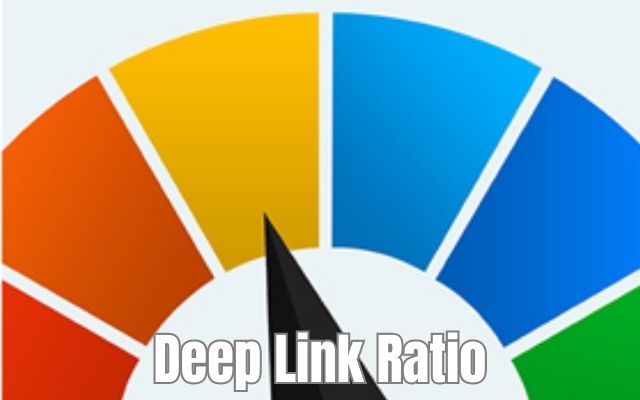Understanding the Metrics of Link Building in SEO

Understanding the metrics of link building in SEO is essential for crafting effective strategies and maximizing the impact of digital efforts.
In the dynamic world of Search Engine Optimization (SEO), measuring the success of link building strategies is crucial. SEOs have at their disposal powerful metrics like Domain Authority (DA) and Page Authority (PA), which are widely used to gauge the effectiveness of link building efforts. However, understanding how to interpret and utilize these metrics in a nuanced way is essential for a holistic approach to link building analysis.
The Evolution of Link Analysis:
To comprehend the significance of metrics like DA and PA, it’s valuable to delve into the roots of link analysis. Google’s PageRank model, developed in 1998, serves as a foundation for many SEO practices today. Originally designed to estimate the probability that a user is on a page, PageRank focused on the popularity of pages. Understanding this historical context sheds light on the emphasis on trust, authority, and popularity in contemporary SEO practices.
Link Probability:
PageRank introduced the concept of link probability, where the likelihood of a user being on a particular page is influenced by links. When one page links to another, a portion of the probability is passed on. The damping factor, represented by 0.85, acknowledges that users may not click through to every linked page, contributing to a more realistic model of web navigation.
Page-Specific Factors:
Contrary to popular belief, the value of links is intricately tied to page-specific factors rather than domains. The number of outbound links from a page and the nature of the linking pages significantly impact the link’s strength. Google’s focus on pages, not domains, challenges conventional thinking and encourages a more nuanced approach to link building.
Metrics for Effective Link Building:
In the realm of link building metrics, speed, ubiquity, and specificity play crucial roles. Fast and ubiquitous metrics are essential for quick reporting and understanding within the SEO community. Metrics like Domain Authority excel in these aspects but may lack the specificity needed for a comprehensive link building analysis.
Page-Level Metrics:
To address this gap, page-level metrics like Page Authority offer a more precise evaluation of a specific page’s value and ranking potential. While slightly slower than domain-level metrics, Page Authority provides a balance between speed and accuracy. Going further, referral traffic emerges as a metric that directly aligns with Google’s original intent – measuring the actual impact of links through user click-throughs.
Balancing Metrics:
The ideal link building strategy involves a careful balance of metrics. Combining fast and ubiquitous metrics with page-specific ones allows for a comprehensive understanding of link value. A suggested approach includes using Domain Authority for quick insights, Page Authority for a more nuanced evaluation, and referral traffic for a real-world measure of a link’s impact.
FAQ
Q1: Why are metrics important in link building for SEO?
A1: Metrics provide measurable insights into the effectiveness of link building strategies. They help SEO professionals gauge the impact, identify strengths, and refine their approach for better results.
Q2: What are some commonly used metrics in link building?
A2: Domain Authority (DA), Page Authority (PA), and referral traffic are commonly used metrics in link building. These metrics offer insights into the authority of a domain, the strength of a specific page, and the real-world impact of links through user click-throughs.
Q3: How does Google’s PageRank model relate to link building metrics?
A3: Google’s PageRank model, developed in 1998, laid the foundation for many contemporary link building practices. It introduced the concept of link probability, emphasizing the popularity and trust associated with pages, influencing how metrics are used in SEO.
Q4: Why is understanding page-specific factors crucial in link building?
A4: Page-specific factors, such as the number of outbound links and the nature of linking pages, significantly impact the strength of a link. Google’s emphasis on pages over domains underscores the importance of considering these factors for a comprehensive link building strategy.
Q5: How do fast and ubiquitous metrics differ from page-specific ones?
A5: Fast and ubiquitous metrics, like Domain Authority, provide quick and widely understandable insights. Page-specific metrics, such as Page Authority, offer a more nuanced evaluation by considering the specific strengths and weaknesses of individual pages.
Q6: Why is referral traffic considered a valuable metric in link building?
A6: Referral traffic measures the actual impact of links by tracking the number of people who click through from a link to a website. It aligns with Google’s original intent of assessing the real-world influence of links, providing a tangible measure of a link’s effectiveness.
Q7: How can a balanced approach to metrics enhance link building strategies?
A7: Balancing metrics involves using fast and ubiquitous metrics for quick insights (e.g., Domain Authority), page-specific metrics for a more detailed evaluation (e.g., Page Authority), and real-world impact metrics (e.g., referral traffic) for a practical measure of a link’s influence. This holistic approach ensures a comprehensive understanding of link value.
Q8: Can combining different metrics improve overall link building effectiveness?
A8: Yes, combining metrics offers a more comprehensive view of link building effectiveness. It allows SEO professionals to identify areas of improvement, refine strategies, and achieve better results by considering various aspects such as domain authority, page authority, and real-world impact.
Read Also: How To Earn High-Authority Links That Drive Rankings
Conclusion:
In the ever-evolving landscape of SEO, link building remains a cornerstone of digital success. Understanding the nuances of metrics such as Domain Authority and Page Authority is crucial for devising effective strategies. By combining the speed of domain-level metrics with the precision of page-level analysis and real-world impact metrics like referral traffic, SEOs can elevate their link building game and drive meaningful results. Happy linking!







